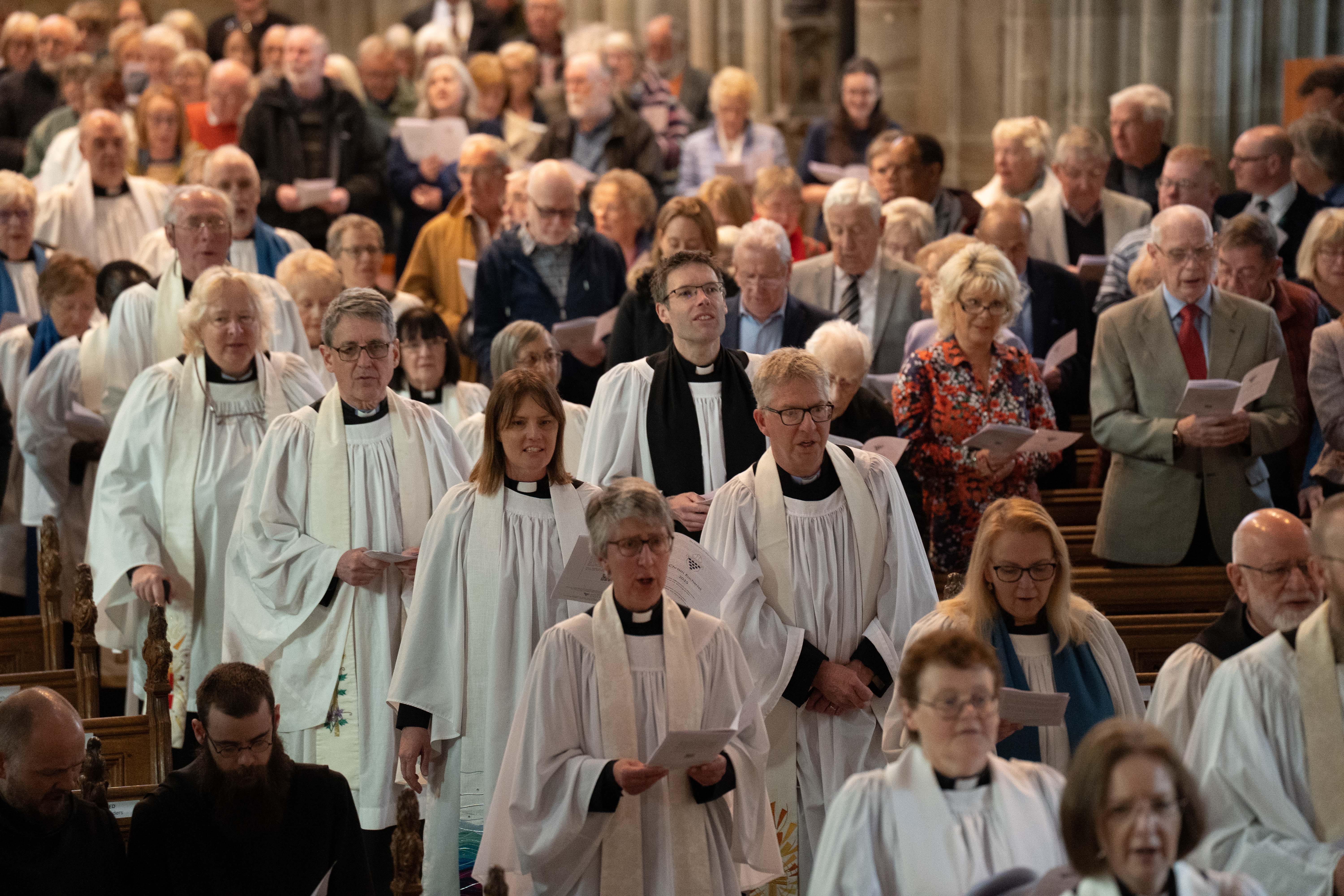 As another year draws to a close, Archdeacon Nikki provides an update on our journey of transformation and change. Where have we reached key milestones? What does the next stage of the journey look like? Are we still heading towards the same ultimate destination?
As another year draws to a close, Archdeacon Nikki provides an update on our journey of transformation and change. Where have we reached key milestones? What does the next stage of the journey look like? Are we still heading towards the same ultimate destination?
With Hugh joining us as our new Bishop in January, this is an exciting time in the life of our diocese. Although there will clearly be adjustments as we navigate an ever-changing landscape and identify new challenges and opportunities, as we move into Phase Two of our transformation journey, we are continuing to focus on our key diocesan priorities. We believe these are the right priorities and will be essential to ensuring churches across Worcestershire and Dudley are healthy and sustainable.
Health and sustainability conversations
Last Spring, we had conversations with every church across the Diocese about their health and sustainability. Thank you to all those who engaged in these hugely valuable meetings which will guide us we move forward in supporting churches of all sizes and contexts.
It was clear that many felt the data held by the national church inadequately reflected reality on the ground with 45% of parishes disagreeing with this data. Ensuing we have accurate data will be a key focus as we move forward.
Alongside the data, the conversations highlighted encouraging stories, but it was also important to name our current reality – for many churches, the present is difficult, and the future looks even more challenging. We spoke to 252 churches and parishes and facilitators together categorised them as:
- Review recommended – 85 churches
- Potential with intervention – 143 churches
- Healthy however… - 21 churches
- Flourishing – 3 churches
Learnings from these conversations, as well as from the first phase of transformation programme more generally have enabled us to identify six key missional challenges as we move forward into phase two:
- Leadership Challenges
- Discipleship (Spiritual Formation) Culture
- Declining Attendance
- Low Missional Energy
- Aging Congregations
- Unsustainable Churches
Equipping Ministers for Mission
It is increasingly clear that to tackle these missional challenges, leadership support and development is central, reflecting the importance of our underpinning priority: Equipping Ministers for Mission. Phase Two of our journey will have a significant focus on coaching both clergy and lay leaders, accompanying them to be better positioned to respond to local needs, inspire missional energy and help navigate ongoing change. We will also focus on nurturing new leaders from among our congregations and continue to foster a culture of shared leadership across our diocese.
Key Milestones
We are seeing positive impact from Phase One of our transformation journey, particularly in churches where targeted interventions have been implemented. Our renewal churches are demonstrating increased vitality, missional confidence and community engagement. They have seen a 33% increase in their Average Weekly Attendance and have started 20 new worshipping communities with around 140 individuals attending. Teams from several churches across the Diocese have almost completed the Myriad learning pathway to support their emerging New Worshipping Communities, enabling the Good News of Jesus to be shared with more people and pioneer ministry and community-based approaches leading to new fruitfulness.
 We now have 22 employed children and family workers across the Diocese, 9 funded by the national church and 13 through the Healthier Churches Fund. Our iSingPOP pilot is on course to launch eight intergenerational New Worshipping Communities and 10 churches and schools have achieved a Church School Partnership Award.
We now have 22 employed children and family workers across the Diocese, 9 funded by the national church and 13 through the Healthier Churches Fund. Our iSingPOP pilot is on course to launch eight intergenerational New Worshipping Communities and 10 churches and schools have achieved a Church School Partnership Award.
Our learning from Phase One has been that where there is already vision, energy and clear leadership, funded projects thrive. For Phase Two we want to continue to look at where God is already at work and join in!
Funding
The national church’s focus on clergy wellbeing through funding pensions and stipends means there is less money available for diocesan projects. This means the amount of funding available from the Strategic Mission and Ministry Investment Board (SMMIB) is not as much as we were originally led to believe. Whilst disappointing, this gives us an opportunity to reassess where we want to place our best energy.
However, we are committed to finding funding for those things which are essential to enabling our parish churches to flourish, including making additional applications to other funds held by the national church, and thinking carefully about how we use our Healthier Churches Fund, released through careful management of our reserves. This may involve a slight refocus of that fund to ensure we can prioritise parishes with plans for growth.
Next steps
 A consolidated plan for Phase Two of our transformation journey, together with a finalised bid to SMMIB, and clarity about where we plan to direct our resources realised through Total Return will be presented to Bishop’s Council for approval in January 2026.
A consolidated plan for Phase Two of our transformation journey, together with a finalised bid to SMMIB, and clarity about where we plan to direct our resources realised through Total Return will be presented to Bishop’s Council for approval in January 2026.
This will be a continuation of Phase One, recommitting to our diocesan strategic priorities and building on the foundations laid. It will respond to what we have learned and what we continue to discern, as we seek to grow in health and sustainability across every context.
With a renewed focus on leadership, discipleship, children and youth, missional innovation and renewal, we are committed to supporting every church that wants to grow, offering opportunities for people of all ages to come to and grow in their faith, able to realise their God-given potential.
As we develop the enabling structures—measurement, funding, and people planning—we remain rooted in prayer, open to the Spirit, and focused on our shared vision: to grow as Kingdom People in healthy, sustainable churches across the diocese.
Thank you for all you are doing to share in this transformation journey. Please continue to pray and share your stories as we discern together the shape of God’s exciting plans for the next phase of the life of this diocese.

